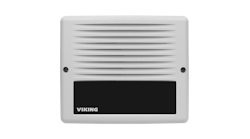Starting Tuesday, travelers boarding certain international flights at Philadelphia International Airport will have their face scanned along with their boarding pass.
Three gates at the airport will begin a 45-day pilot program for facial-recognition scanners that cross-check a live image of a person with their government photos. The scanners are meant to help U.S. Customs and Border Protection process passengers and speed up boarding, the airport said.
Gates A15, A16, and A17 will each use a different biometric technology scanner for select outbound international flights on Qatar, British Airways, Lufthansa, and American Airlines. After the pilot program is complete, the airport will assess which brand performed best for permanent use.
CBP will install the system for travelers entering the country through Philadelphia, too. There is no timeline yet for that installation, but it will be in the Federal Inspection Station located in Terminal A-West.
All travelers will be scanned unless they ask not to be. But while foreign nationals are required to get additional screening, they can opt out of the scans for outbound flights and be verified through other documents, said Stephen Sapp, a CBP spokesperson.
“It is designed to expedite boarding by eliminating the time gate attendants take to verify the traveler’s identity manually," said Sapp. Passengers will still have to present their boarding passes and passports during the pilot, but over time, the technology is expected to replace that paper check-in process.
The installation is part of a federal mandate and a more-than-decade-long push by Congress to track foreign travelers who enter and exit the country. As reported by the Washington Post, Congress in 2016 approved the use of up to $1 billion collected from visa fees to fund the technology’s implementation. A March 2017 executive order directed the Department of Homeland Security to speed implementation.
Currently, 26 airports use the biometric scans for people leaving the United States, 16 use it for people entering the country, and six seaports use it for both entry and exit. Government officials say the technology provides additional security, and has identified seven people traveling with another person’s documents since September 2018.
But privacy advocates fear bias, inaccuracy, and potential misuse of the information collected.
“Automation in the boarding process makes sense in the efficiency and economic standpoint,” said Michael Kearns, a professor at the University of Pennsylvania who specializes in machine learning, algorithms, and their biases. “But this also means that much more data about us will be logged.”
“It also moves us more and more towards a surveillance society," he said.
Biometric technology, or tech that uses your physiological characteristics, like the thumb-print and facial scanners in iPhones, are not new to society, or to airports. British Airways has used the technology in London’s Heathrow Airport for close to nine years.
As passengers board, a tablet device mounted on the gate kiosk scans their face and compares it to a database filled with passport or visa photos. If the images match, the machine clears the passenger for boarding. If there is a mismatch, the screen flashes, and the person may be pulled aside for additional screening.
Once identities are verified, U.S. travelers’ images are deleted within 12 hours, CBP said. Foreign travelers’ photos are deleted from the comparison database within 14 days, but then may be retained in the Department of Homeland Security’s Automated Biometric Identification System, according to CBP.
Inaccuracy and security is also a concern.
Kearns said that traditional machine learning is inherently biased. Over time, certain minority groups may suffer delays in boarding, or be pulled aside by attendants more often.
“The question is not will it make mistakes, which it will," he said. “But how might those mistakes be unequally distributed across demographics?”
———
©2020 The Philadelphia Inquirer
Visit The Philadelphia Inquirer at www.inquirer.com
Distributed by Tribune Content Agency, LLC.


